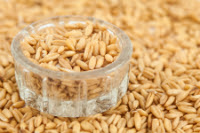Patients often ask me about probiotics and many find great help in the high quality probiotics that we sell in our La Mesa Naturopathic clinic. These good probiotics have to be refrigerated, so how can we keep the good bugs coming when we travel or go on vacation? High quality probiotics can last for 5 days or so out of the refrigerator. I do not advise taking the whole bottle with you during travels but you can take the capsules that you will use. If there is no access to refrigeration away from home, there are two other probiotics that are stable at room temperature and that can help you stay healthy on vacations:
1. Culturelle – This is only one strain and a low dose, but it can work for many patients.
2. HMF Travel – This is a multi-strain option and a high protective dose.
*Both of these recommended products can be found at our clinic.



